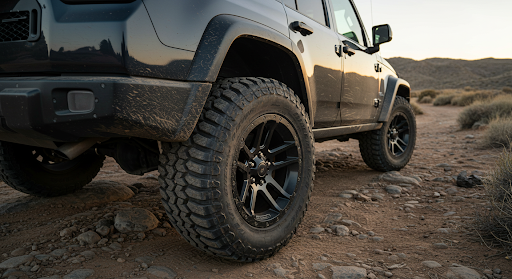
BMW Wins Back the Diesel Crown
Twenty years of diesel fine tuning makes the BMW 535d one of the best all-around cars in the world.
Jerez, Spain — If you wanted to know why sales of diesel-engined cars continue to rise and rise in Europe, then this part of southern Spain — just about as far south as you can be in mainland Europe — was a good place to be in early December.
 |
| The new BMW 535d can be dressed up with the optional M package. |
The 2.0L turbocharged Cosworth had an output of 204 hp at 6,000 rpm and peak torque was 203 lb.ft. at 4,000 rpm. It was fearsomely quick and twitchy over the less-than-perfect Spanish road surfaces.
By the time we got to the end of the test drive that day, the fuel warning lights were on in nearly every car and you knew you had driven long, hard and fast.
Eighteen years on, and an equally long and fast drive was anything but hard, and there was plenty of fuel left in everyone’s tank. We could have done the route all over again, and enjoyed it. The car we were driving this time was a diesel with a top speed limited to 155 mph. It will go from 0-60 mph in an astonishing 6.5 seconds. The final testing of the engine was completed on the Dakar Rally Raid at the beginning of 2003, where it became the first diesel to win a stage on the world’s toughest rally. It is the BMW 535d, available as either a sedan or wagon. Up until now, the best diesel in the world — by consensus over here — has been the Jaguar S-Type with its bi-turbo engine which was the benchmark used by BMW.
The 535d is not only the best diesel in the world, it is arguably the best car in the world because it is such a complete package. There might be one or two personal things that some of us don’t like about the 5 series, such as the styling or the irritating iDrive control. But it is very difficult to argue against a car that delivers as much as the 535d in terms of performance, economy, emissions, comfort, practicality and sheer driving pleasure. BMW points out that over the last 20 years, diesel engine development has seen a 160 percent increase in torque; a 135 percent increase in power with a 20 percent improvement in fuel consumption and a 99 percent drop in emissions. It adds up to a very seductive argument for the pro-diesel lobby.
Despite the 535 tag, the 535 is actually a 530, in other words it has a 3.0L, 6 cylinder engine but unlike the single turbo 530d, the 535d has twin turbos. On the Jaguar S-Type, the twin turbos work simultaneously to boost power. On the BMW, there is a small turbo and a large turbo working together to deliver power seamlessly. So the 535d becomes the world’s first Variable Twin Turbo engine in a production car. Incidentally, 535 has always been used by BMW to signify the performance models in its range and the view in Munich is that this latest dual-stage turbocharged model is a worthy successor to this illustrious lineage.
At low engine speeds, the smaller turbocharger is effective immediately, producing 95 percent of available torque (520 Nm or 383 lb.ft. at just 1,500 rpm). By mid range, maximum torque of 560 Nm — 412 lb.ft. — is delivered and, as the engine speed heads toward the red line at 5,000 rpm, maximum horsepower of 272 hp is achieved thanks to the induction air now being compressed by the larger turbocharger. Even the forthcoming M5, which has 507 hp on tap, cannot match the torque of the 535d, mustering only 383 lb.ft.. It’s hardly surprising that most of us on that launch were left using words like “awesome.” This really is a car that will change the world’s view of diesel engines forever.
It’s a message that has been spreading — more than 50 percent of all 5 series sales in the U.K. are now diesel, and the U.K. has just recorded (in November) its fiftieth consecutive month of growth in the diesel market.
In October 2000 — when the growth run began — diesel penetration was 15.1 percent, reports the Society of Motor Manufacturers and Traders (SMMT). In November 2004, the market share rose to 36.9 percent, just 0.3 percentage points shy of the record set in October 2004. Diesel volumes rose 20.7 percent in November, to 63,541 and by 19.5 percent over the year-to-date. The full year tally looks set to better the forecast of 820,000 units and 32 percent market share.
This article was provided exclusively to Automotive Industries by Interchange, a U.K.-based automotive business agency and consultancy servicing media and corporate clients. Anthony Lewis is a partner in Interchange and can be contacted via e-mail at interchangenews@aol.com.









More Stories
Best Wheel Size for Off-Road Adventures: What People Get Wrong
Trusted Auto Collision Repair That Restores Both Performance and Peace of Mind
What You Need to Know About Tire Pressure in Winter vs Summer